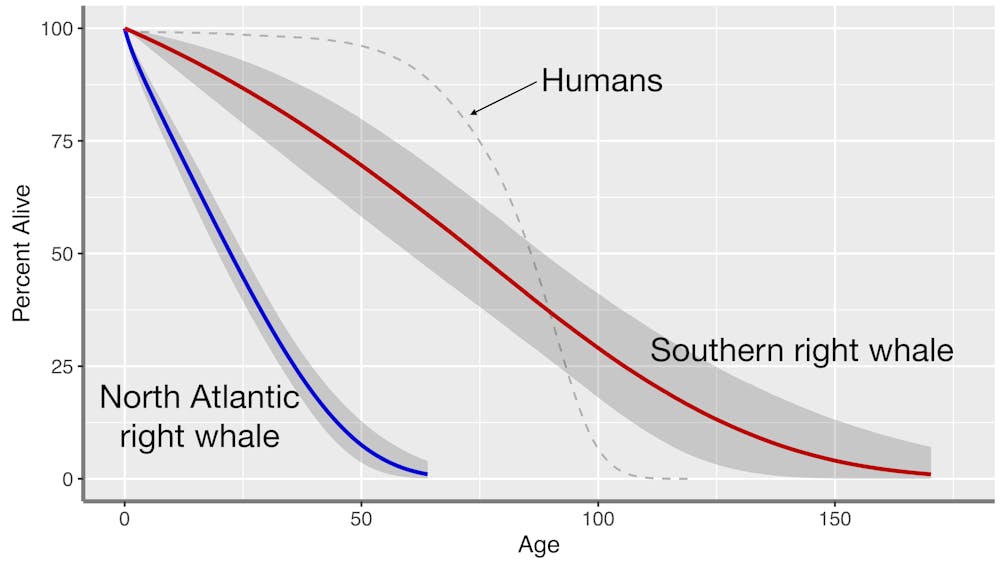The Surprising Lifespans of Whales: New Research Reveals Their Potential for Longevity
[By Sarah Thompson and Michael Reynolds]
Recent research published in the journal Science Advances has shed new light on the lifespans of Southern right whales, challenging conventional beliefs. Contrary to previous estimates of 70-80 years, it is now suggested that these majestic creatures can live well past 100 years, with some even reaching 150. This groundbreaking study, conducted by Greg Breed and Peter Corkerton, highlights the remarkable longevity of these marine mammals.
Interestingly, a stark contrast was observed in the lifespans of North Atlantic right whales. Despite their close relation to Southern right whales, the average lifespan of North Atlantic right whales is only 22 years, with very few individuals living past 50. The primary reason for this significant difference is attributed to human-induced threats such as entanglements in fishing gear and ship strikes, leading to a high mortality rate among this critically endangered species.

Through the use of photo identification techniques, researchers were able to track individual female whales over several decades, allowing for the estimation of their potential lifespans. Survivorship curves were developed based on the probability of whales disappearing from photographic records as they aged, providing valuable insights into their longevity.
The discovery of the extended lifespans of Southern right whales challenges previous assumptions about the longevity of whale species. This new information has significant implications for conservation efforts, as it underscores the importance of understanding the life history of these animals in order to implement effective protection strategies.
Implications for Conservation and Management
Animals with long lifespans, such as baleen whales, have unique reproductive patterns that are heavily influenced by their potential longevity. Conservation strategies must take into account these characteristics to ensure the long-term survival of these species, especially in the face of ongoing threats and climate disruptions.
Future Research and Conservation Efforts
While the study focused on Southern and North Atlantic right whales, there is still much to learn about the lifespans of other whale species. The legacy of industrial whaling continues to impact whale populations, and further research is needed to assess the recovery of older individuals within these populations.
As we strive to protect and conserve these magnificent creatures, it is essential to consider their potential for long life and the impact of human activities on their survival. By understanding and valuing the longevity of whales, we can work towards ensuring a sustainable future for these marine giants.
Sarah Thompson is a Marine Biologist and Conservationist.
Michael Reynolds is a Marine Ecologist and Researcher.
This article was originally published on The Conversation and can be found here.


